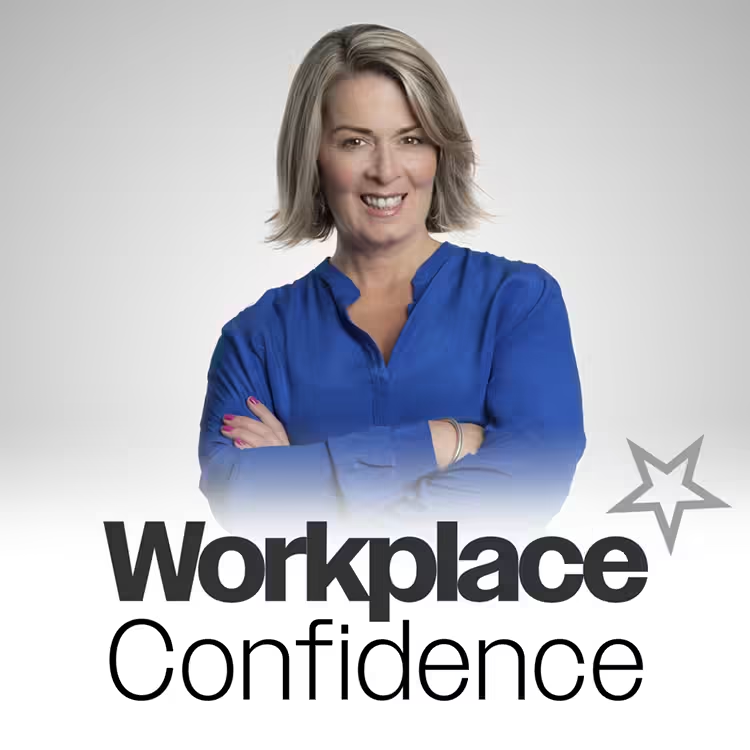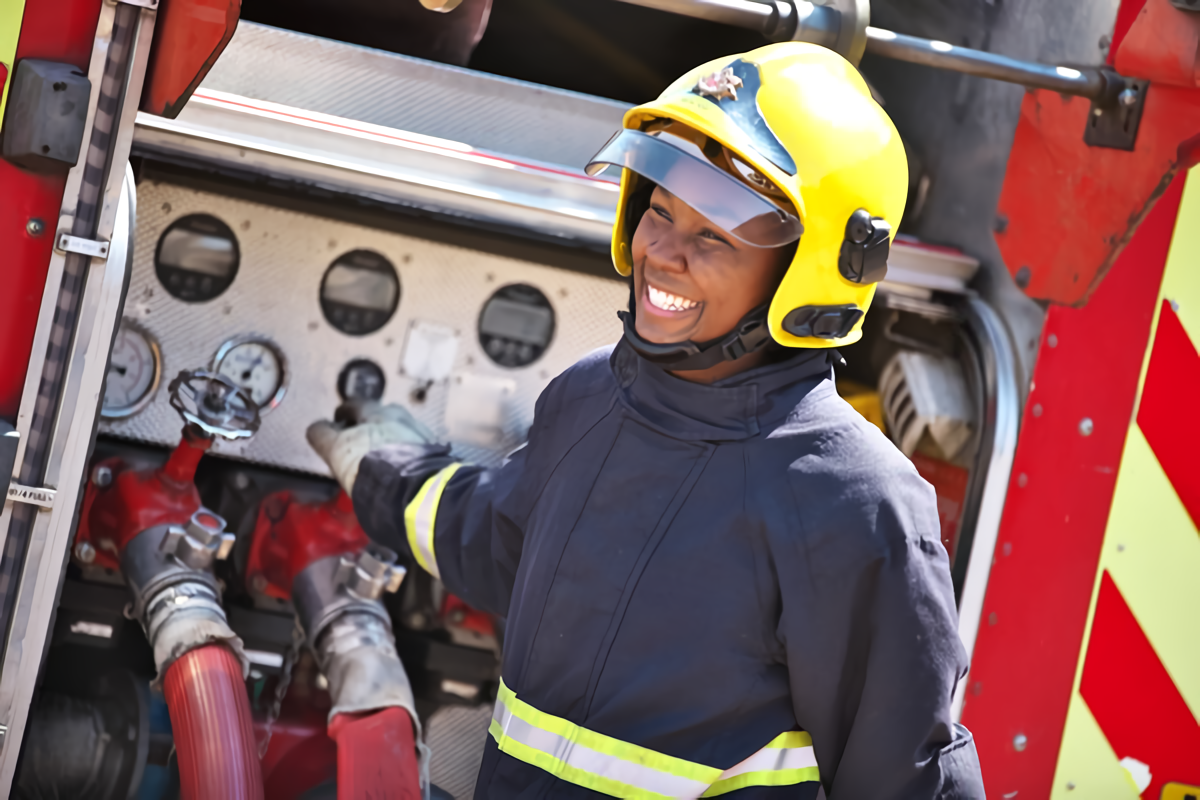
Disrupting higher education and empowering people at UA92 – Ian Turner
Episode 1: Workplace Confidence Podcast
Where people professionals share the great work they doIn this episode, Ian Turner, Chief of People and Place at UA92 (University Academy 92). Ian shares how UA92, co-founded by Gary Neville and the Class of 92 footballers alongside Lancaster University, is revolutionising higher education by focusing on social mobility and accessibility. With initiatives like the Make It For Real campaign, UA92 helps remove financial and logistical barriers, offering bursaries, tech support and even meals to students from lower socioeconomic backgrounds...
Listen now
Ian reflects on the rapid growth of UA92, from just 80 students in 2019 to around 1,400 today, driven by its mission to make education accessible for all. He discusses the challenges of scaling up in a traditional sector and how UA92’s culture of being "fired up," deliberately different and inclusive guides their approach.
Penny and Ian delve into Ian’s career journey from sales to HR, highlighting his passion for developing people and fostering a culture where everyone is empowered to lead. Ian shares his approach to making HR more than just a transactional function, emphasising the importance of visibility, human connection, and embedding himself within the organisation.
Throughout the conversation, Ian offers insights on leading with empathy, overcoming imposter syndrome and creating a workplace where people feel valued and fired up.
More episodes
Transcript: Ian Turner, Chief of People and Place UA92
UA92’s commitment to accessibility, tackling socio-economic challenges through partnerships
Ian Turner
I can give you a stat right now that 42 % of our students come from what we call the polar quintile one and two, which are the lowest socio-economic areas of Greater Manchester.
And we've done that through bursaries, but also with a lot of our accessibility work that we do. So we'll get into communities to talk to them and try and inspire these young men and women to get into university and give them something to aspire to. But we'll work with partners on our, we've got a thing called the Make It For Real campaign, which essentially is there to remove the blockers. So our partners will provide
a laptop, the data connectivity, the transport into university and a hot meal when you're on site. So those kind of logistical things that might ordinarily mean, okay, it's great to be able to go to university, but I can't afford it or I can't even get there, then we try and overcome those challenges for them as well.
Penny Haslam
Gosh, that's paid off then, hasn't it, with such a high number, 42 % of people from, for want of a better phrase, what's the word?
Ian Turner
It's those lower socioeconomic, it's more deprived areas of Greater Manchester.
P.H.
Yeah, deprived is what we'd call it. Can I just do that question again? So actually that input, you know, more broadly has helped with that amazing figure of having 42 % of your students from, I suppose what you'd call a deprived background. How is that sort of having a legacy impact? Does it mean that more people are more likely to know about the UA92 and more likely to apply to be a student there?
Ian Turner
Push come.
Growth and success at UA92
Ian Turner
Yeah, 100%, 100%. I mean, if I think back to 2019, we called them the pioneers, the first students, because I guess they took a bit of a risk by coming to us because we were new. And we had about 80 students. This September we'll be up to about 1 ,400, which is huge growth. And it is down to the fact that people are seeing that higher education is more accessible.
And don't get me wrong, we've got many students that would probably ace the first in Russell Group universities as well. But the blend is amazing. And I think we've got our graduation next week and there's no greater reward for all your hard work than seeing these graduates on stage getting their degree who three years ago, four years ago, probably wouldn't have even thought about it. And their life could be totally different.
as a result and that's what drives everybody I think at UE92.
P.H.
So we look at your founders, Neville, Giggs, others I don't recognise because I'm not a sports person or interested in football in any way, but they all met at Manchester United in 92. They were the class of 92, the stars, the celebrities of the football pitch at the time. I would imagine then that many of your graduates are coming out with degrees in sport -related education. Is that the case? Is it all sporty at your place?
Ian Turner
Yep
Ian Turner
They were.
Myth-busting UA92’s focus beyond sport
Ian Turner
No, we actually have four worlds as we call them. So we have the world of sport where you can do your sport and exercise science and PE and those kind of degrees. But we also have world of business where we do accountancy and finance and business management. We've got the world of digital, all to do with sort of computer science, et cetera. And then we've got the world of media, so media studies, et cetera as well. So a real kind of blend across all four worlds now.
There was a little bit of a myth at the very start, I'll be honest, around, you know, this is Gary Neville's university, for example, and therefore it'll all be, it'll be male and it'll be football related, but actually that's, that's totally untrue now.
Why launch a university in a challenging market?
P.H.
What is interesting, and that's good to hear about all those different subjects, tell me about this challenging sector though. Why would you start a university amid such a challenging time for universities when the fee in real terms has been reducing all the time? There's pension deficits perhaps for the lecturers and the staff.
And it's a mix that, why would you even get involved in that as a business in the first place? That's quite brave, isn't it?
Ian Turner
Yeah, and there was a phrase that when I spoke to the guys at Lancaster University, because we're 50 % owned by Lancaster University and any students that come to UA92 actually come out with a Lancaster degree. But I was speaking to them and to others that were around right at the very start and there was this phrase that says, this is either bonkers mad or bonkers brilliant, this idea, and it's turned out to be bonkers brilliant.
And the reason I think for that is you mentioned things like the pension deficits, reduced international students, that kind of thing. We're not actually held back by a lot of those legacy challenges that the larger universities have actually got. We don't rely heavily on international students and that has been an impact because of different government legislation, et cetera.
Founders’ legacy and community impact
If I think back to the very, very beginning, the class of 92 guys, they wanted to pay something back to the local community that supported them during their footballing years. And that was the main ethic behind the founding of UA92. And in fact, we're based just opposite the cricket grounds, so sort of five minutes walk from the ground where they were playing. So yeah, that was...
P.H.
and just a mile or so from the United.
stadium aren't you as well?
Ian Turner
Yeah, yeah, probably less than that actually. And ironically, I have to admit, I'm actually a Manchester City fan. So working with all these Manchester United people, you know what, years ago I probably would have said no chance, but they're doing such a phenomenal job. Honestly, I can only respect everybody on it.
P.H.
surprised you got the job if I'm honest with that background in your fandom.
Ian Turner
I'm not sure that's all done.
P.H.
Before we dive into the work of your Chief People Personage right now at UA92, I'd love to hear a little bit Ian about your background. We met when you worked at Talk Talk, didn't we? But what's your history? What's your CV look like?
Ian Turner
Yeah.
The accidental HR career that led to success
Ian Turner
I'm one of these people that probably, fell into HR many years ago. so I came through from a kind of background of sales, et cetera. and I was doing okay. They asked me, would I do some training of new people? and that led into a, into a training role. they then broadened into a wider generalist HR role whilst I was at, Bank of Scotland. Since then.
various different organizations. But ultimately I've always been in either an L and D or generalist HR role. And as you mentioned there, we spoke when I was at Tor Talk and I did 16 years at Tor Talk and that went through everything from HR manager to an HR ops manager. And then most recently before I finished there, I was talent director for about five years.
and that was fascinating. That actually got me involved with UA 92 because we were recognizing the great Manchester's had amazing inward investment and brought lots of different organizations into the area, but we needed to do something to sustain, and build the talent pipeline coming through. and that's when I got involved with UA 92 as a feeder, if you like, into roles. and then, when I finished up with, talk talk back in December and the
came up at UE92, it was quite simply the easiest decision I've ever had to make.
P.H.
That's quite a wonderful story really, but I want to ask you about this aspect, which, you know, if you're in sales and then you get into training, there must have been a moment where you went, blimey, people are fascinating, aren't they? People in organisations are fascinating. I want to help develop them. I want to be part of this. Can you remember a moment like that?
Ian Turner
Yeah, now you say it like that. You do because it's, I suppose before that you look at kind of organizational strategy and you know, you have this naive view that everyone's running the same direction and thinks the same and then doing this, delivering these wonderful profits. And when you get actually to work with individuals, you see the nuances, you see the different ways that people are motivated and driven, the different challenges that they've got and need to overcome.
And it is, and it was fascinating. And as I say, I kind of fell into it by accident really. But it was probably the best thing that ever happened because, you know, throughout many, many years now in the HR world, that fascination is always there for me.
Moving beyond transactional HR
P.H.
It sounds like you've been able to entertain that fascination, if you like. A lot of HR roles or a lot of HR people tell me that they're just quite frustrated by the fact they're seen as transactional functional department who'll sign off annual leave forms and do the discipline procedure stuff and actually would craving more input on developing people and a general strategy for the value proposition for employees and...
the values of the organization. You've had a really good time with that, haven't you? But what would you say about that aspect of needing more of a voice or wanting to have more of a voice? How would you achieve that?
Ian Turner
yeah, I mean, I've actively fought against that transactional view of HR, almost like the internal police kind of approach. and I've done that through many different ways, but the main way is embedding yourself within the organization, speaking to the leader, speaking to, people on the shop floor, if you like, and just getting to know people. Cause actually that way.
You almost deal with the root cause rather than the outcome. So lots of outcomes of things like having to do lots of disciplineries, high absence rates and lots of recruitment. They all usually stem because the culture isn't right or we haven't got maybe the recruitment right, that kind of thing. So actually getting into what I call the fun stuff of really looking at an organisational culture, then you tend to.
Empowering managers to own their people challenges
not always, but you tend to bring the right people in. You tend to nurture them really well and have the right kind of psychological safety and culture within an organization. And that helps people to thrive, but dealing with people as individuals. But also one of the key things that we did was we empowered the line managers an awful lot more. So the old days of, you know, I've got an issue with my team, go and get HR to come and fix it. Well, we were saying, you own it. They're your people, you own it.
and are you doing everything to support them? and, and go manage the situation. It's not for us to, I had, we had a awful saying at one point in a, in one name, the organization, but it was almost like spillage in aisle three. Can you come and clean it up please? and we were like, no, not at all. No, we're here to do that. We're here to do the kind of cultural stuff and, the other bits and, you know, make sure the organization's legal, but
We're not just there to do the transactional stuff.
Becoming a visible and approachable leader
P.H.
So empowering and encouraging others to take responsibility for how they manage their people. That's quite a big cultural piece that one person cannot do on their own. But just talking about, you know, you said embedding yourself. I embedded myself and I was visible to the higher ups and I was visible to the shop floor and everyone in between. And what sort of confidence did you need, Ian, to be that visible leader who was able to...
Ian Turner
Yeah.
P.H.
be a thought leader and be a counsellor and confidant, what spurred you on to be like that?
Ian Turner
I think probably the fascination with people as individuals. So, you know, any, hopefully anyone that's ever been in one of my teams would tell you that I am totally not hierarchical. I'm willing to roll my sleeves up, but I love just going meeting people. And, you know, particularly UA92 was small enough to try and get around virtually every member of staff and just have a coffee with them, have a chat with them, find out what's working for them, what's not.
what they'd like to do in the future. I find all of that personally really fascinating. And then you can take all of that information. You just help to form your plan. And it's based upon real feedback. I also think that if you're human with people, and I'm massive on this, if you're human with people, you'll find out so much more. If you're this kind of hierarchical,
CPO that sits in their ivory tower and almost passes stuff down through the organisation. The kind of feedback you probably hear back up the line will be sterilised and that doesn't really help anyone. So yeah, it's probably my fascination with people and loving to go and meet people that really does it. So I don't find that work.
P.H.
How did it go down then, the Chief People Officer hanging around having coffees with individuals? Were people like, here comes HR, I'm in trouble? Is there anything like that going on for people, do you think? Or did you keep it light touch, easy breezy?
Breaking down barriers between HR and employees
Ian Turner
Yeah, really easy breezy. I was just chatting with them. And actually, yeah, of course, at first, there's probably an element of trepidation or what could I say? Am I okay to say this? Am I safe to speak up? But again, if you're just human with them and chat with them and it's conversational, it's not like you're interviewing them, then you find out so much more. And, you know, I've been a...
UA92 full time now for about four months or so and the feedback that we've had is that there is no chasm between HR and the people any longer and actually people do feel free to come and talk to us and have a view and come to me, crucially come to me with ideas and that's just brilliant.
P.H.
It sounds like you're an ideal role model for a visible leader. Other leaders who perhaps struggle with that interpersonal empathy and being a human. You know, we know there are leaders who do really struggle with this and don't engage people and don't, you know, there is a chasm in the hierarchy. How would you encourage those people? Do you do it through doing yourself and being a role model? Or do you actively...
mention to them that perhaps they could do more of the same and have a better effect and greater impact in their organization and in their role as well.
Role modelling leadership for others
Ian Turner
Yeah, I mean, I do try and role model it. I would definitely not say I've aced it in any way, shape or form, but I do try and sort of lead by example. Again, I remember one very, very senior leader in an organization I was at and literally would pull up outside in the car park, walk straight through the front door up to their office and then conduct meetings and then walk straight again, sort of six o 'clock in the evening back to the car and drive off.
And I spoke to them one day and I was, we had a really fascinating conversation and it was driven by the fact that that individual said, well, people don't want to hear from me. Why would they want to hear from me? I've got nothing in common with them or whatever. And just a bit, but it was a real confidence thing rather than an aloofness. And I said, you know, you've, you've built this organization. You've got people that you've brought into this organization with entrepreneurial spirit and look at you.
P.H.
Yeah.
Encouraging confidence in leaders through visibility
Ian Turner
really fondly and they probably just want to hear from you about how you've done it and those kinds of things. And I think what had happened was he built himself into this kind of CEO role that subconsciously had created the divide. And it was actually his confidence that he didn't think people would want to speak to him rather than the other way around. So we flipped that on its head and he just, I said, just come and have a walk around and just people got chatting to him.
even if it was about his new car that he was buying or something along those lines but they just got talking to him and you did see a change, you did see a change for sure.
P.H.
Did he reflect on how he felt about that first, sort of stepping out of his comfort zone of his office and his car to actually do the meet and mingle bit? Did he reflect and tell you how that went for him and if he continued it?
The challenge of confidence for senior leaders
Ian Turner
Yeah, because he said, I remember very starkly, he said, you know, he stood up and done public speaking in front of four or 500 people and did that without blinking because it was in his comfort zone. Walking out and talking to his own teams scared the heck out of him. And he had to overcome that and go and talk to people and just walk the floor. That was the crazy bit.
P.H.
I mean, I call it a smile policy and a say hello and a Dell policy. Say hello to everyone. Even if that's all you can do because you're either time poor or you're shy or it doesn't feel right or you're who am I just saying hello and smiling. I often think about managers I've been, you know, leaders I've been involved with and I haven't even done eye contact. And it is, it's about confidence, isn't it?
Ian Turner
Yeah. Yeah.
P.H.
feeling of place. And I think, I mean, it sounds like you've got that in spades, that kind of ability to be human. So let's talk about the humans then, in your organization, your new organization, you're the new lad, you've got a new pencil case. Culture and informing it and enabling your organization to grow. Those are your...
Ian Turner
Yes.
P.H.
goals, the strategy piece for people, is that right? Tell me more about what's going on in
Ian Turner
world at the moment that you're excited about.
The emotional language behind cultural transformation
Ian Turner
Yeah, I mean, coming into a new organization and like that, I kind of worked with them for a few years, but you see the veneer as a partner, then you get the role and you get under the hood. And, you know, I saw this massive purpose driven piece. Everybody used to talk to us about how wonderful it is, what we're doing for social mobility, et cetera, et cetera. And then you kind of move beyond that. They've said that bit and you get under that, you get right into the weeds with it.
You know, we'd gone through a big startup phase where everybody had been involved in everything. And now we were getting into more of a scale up phase where people tended to stick to their swim lanes a little bit more, if we use that term. And what that actually meant then was sometimes people felt a little bit aggrieved that they weren't involved in everything. They felt a little bit left out.
And there was this feeling of kind of equity and inclusion and things like this. so that started to drive a siloed mentality. So what we've essentially, what we've got to do. Is we've come in and we said, right, we want to create the EVP, what it means to work here at UA 92. Why should people come and join us? Why should our existing people stay? And then let's have a look at the values of the day to day behavioral drivers of this. and.
Involving everyone in cultural activation
Again, rather than just myself and the team sitting there doing a desktop exercise and then pushing it out. We're lucky that we've got sort of 150 staff. So we've run workshops with every member of staff and got their views and got them to have a say in what the culture looks like. And we said deliberately build it on a culture of what you would like to see in 12 months time. Cause there's recognition when not superb today. So what does it need to look like? And then we'll look at.
the action plan to get there. So we spent probably about six weeks going around running all these workshops. We brought them all together and actually presented it to the board literally yesterday afternoon. And there was a comment from one of the board members that's just said, I think you've nailed it. That has absolutely just made the hairs on the back of my neck stand up because I think it was honestly, it was such good feedback. And it was, but it was because it came from the people.
P.H.
that's lovely.
Ian Turner
and they were telling us this is what it does.
P.H.
What sort of words, Ian I'm fascinated, in those sessions, in those workshops with your 150 staff over that six week period, what sort of language were they using? I mean I find it very difficult, and other people do, to describe what their culture is. They just feel it and it's difficult to pin it into words because words mean different things to different people. Did you get a sense and a vibe of what people were experiencing and what they wanted to experience? What were the words?
Ian Turner
Yes, it's interesting actually that one Paddy because what actually happened was they started to come out with the kind of corporate buzzwords, we're mission driven and things like this. And you know, and you can see the apathy around the room, you know, people were sort of slumped in the jazz talking about it. And I did a piece of work with them and you just, you just said it yourself. Culture isn't something that's tangible. Culture is something you feel, you know, you feel motivated to get out of bed, to go to work.
P.H.
Mm.
hehe
Ian Turner
You feel empowered, you feel valued. So I said, they've got to try and come up with language that resonates emotionally with them. And that was a journey. And I remember when we brought all the champions together to almost come up with the final view of this. We were about an hour from the end of the workshop and I thought, we've not done this. We've not cracked it. People were still looking a little bit lethargic in their, in their seats. And there was one guy, Karim.
And we were talking about this mission driven bit. And he went, we need to be fired up. And then literally the room just, everyone just sat up straight and went, yes, that's exactly what it should be. So one of our pillars of our EVP now is fired up. and once they started to get into that kind of emotive language, it's really in line with our tone of voice as an organization. It really started to kind of flow then. And we came up with these,
five pillars, we came up then with three new values. And that was the bit when I took it to the board yesterday, they kind of said, the language that you've got there really resonates and it really sums up what it's like to work at UA92. So yeah, it was amazing.
P.H.
What I love about that is that it's language that you speak, not language that you write down. So when you're given a pen or a keyboard, you tend to go into that corporate buzzword language and use things like, yeah, mission -driven. When actually, if you're just chatting about how you feel, you go, yeah, I just want to feel really fired up. And it's quite, is it Northern, do you think? Like, it's just more human, isn't it? And I think that speaks to...
Ian Turner
Yes.
P.H.
how you operate and how you get things done on a human level. What were the other values then? Can you remember them? I bet you can. What are your five pillars?
Ian Turner
(27:03.84)
Yes, well, five pillars were fired up, stronger together. Open and honest. Deliberately different, so grabbing creative disrupting the sector and what I really liked was unlocking greatness. So we'll develop and encourage you to be the best kind of version of yourself so that unlocking greatness and then we.
We talked then about those are the kind of where we want to be in 12 months, but the day to day, minute by minute values and behaviors that we want everybody to own and be empowered to praise people or call people out. We went with the power of three, because it's easy for me to remember as well. But we talked about we care and we said we cared about our students, our staff and our community. One I particularly love was we're brave and bold.
P.H.
Nice.
Ian Turner
And we really want to kind of go and be that brave experimental disruptor. And the final one was we're inclusive. And we struggled with that a little bit because we said, look, this is absolutely got to be a value that we're inclusive. You know, we're all about social mobility and everything that goes with that. And we've got to be inclusive and let people belong. But we thought it sounded still a little bit samey.
Lots of people say it, lots of organizations say it. So there were people in the room on chat, GPT and all sorts trying to come up with new ways of new terminology. But actually we just went with the wrong seal view and said, look, this is, we're inclusive. So when we're in meetings, making decisions, or when we see things out on the floor, you know, we can, we can call people out and go, that was really inclusive or are we being really inclusive when we do that? So we ended up sticking with we're inclusive, even though
we had a little bit of a challenge over it.
P.H.
I love these, I think they're fantastic. When I do my confidence keynotes and workshops, I do a section on values, Y -O -U -S, because people often haven't ever stopped to think about their own personal values and belief systems. And when they do, it's something that helps supersede any sort of confidence challenge you might have. So if you're not sure of yourself and environment, going back to your value of being brave and bold,
kind of can spur you on and ensuring and having the intention of being fired up can remind you not to be dwelling or wallowing or ruminating. And so for me, values are so important at a personal level and they so often don't match up with the words, the intention is there, the intention and it's not through malpractice is it that people have things like mission centered, driven, one people.
P.H.
but that I can see how these would really drive your behaviors and your every step of the way thinking on how you do things. So yeah, I think you have absolutely nailed it. I echo the board member who said that. What are you gonna do with them now? Sorry, I'll say that again. I'll do that. But hang on a minute, Ian. So what's next then?
Ian Turner
Yeah, and it's the best... Well, I'll tell you one thing... Go on.
Ian Turner
Well, I can tell you one thing we're not gonna do and that is just put them up on the wall and hope that everyone reads them and lives and breathes them. So we're planning, yeah, we've got mugs. Yeah, T -shirts, yeah, that's it. Everyone's getting a values tattoo. We're gonna do these, we call them kind of activation events and things like that. So, you know, we've...
P.H.
(30:33.229)
So they're going on a mouse map, right?
Or mugs, yeah, nice, t -shirts.
Ian Turner
we're gonna run a social event from afternoon and that's all centered around stronger together, because it's breaking down those silos. We're introducing staff networks. We've got a pride one, we've got a diversity one just in the process that's up again, deliberately cross functional. So we're breaking down those silos again. We run, we actually run a topic called 92 program, which is
essentially around the sort of softer skills, if you like, for all of our students. You use your academic piece, but then you do topics on things like resilience, problem solving, stakeholder management, those softer bits. And we say to the students that it's the degree that gets you the interview, it's you that gets you the job. So we're saying, well, let's flip that again. And why don't we put our staff through the 92 program? Because that will help develop them. So then when we start to
work on that unlocking greatness. We're doing the same thing for our students as we're doing for our people and we're really walking the walk on it. So we're going to do lots of these events and we're involving the people that were involved in all of these workshops to say what does it look like to you? How can we bring this to life for you in a way that means something for you? And that collaborative bit, I think A, helps the relationship.
But again, B means that we're going to land something that is meaningful to them rather than me at 51 years of age trying to come up with a plan for a load of 19, 20 year olds. You know, it just doesn't work. My 14 year old son tells me that all the time.
P.H.
Ha ha! Yeah. Have you, has your credibility not risen with your son, with your new job. No, it's what you... A bit.
Ian Turner
a bit. I'd like to say we've made great strides in that bit, we definitely have, and still he's got it.
P.H.
Yeah, I mean, it's getting to the stage, isn't it, that people are asking, who's Gary Neville, who's Ryan Giggs? Sounds like you're fired up, Ian, I have to say. It's a joy to hear, actually, that even though you've had a really long career so far in people management and talent development, that you're still passionate and fired up about progressing your people. You've got a challenge on your hand, haven't you? Because you want to grow.
Ian Turner
Yeah.
P.H.
at UA92 in size, you're now a scale up in scale up in stage. What are you going to do to get more bums on seats, staff wise at least?
Building UA92’s employer brand
Ian Turner
Well, we're going to use these values and these pillars to be our shop window and we're going to recruit against them. That's the key bit for me to make sure that people join us that are fired up and really like the deliberately different bit. Because, you know, higher education, if I think about this as a sector, it's been historically quite traditional.
and you know we do things very differently at UO 92 on purpose so you know that will fit for some people and it won't fit for others and it's only fair that we help them make that decision as well as we go through the process so you know the student numbers just continue to grow and grow and grow which is amazing and we've got strategies around that.
And then it's about, you know, building the employer brand based upon these, these pillars of values, getting out and meeting people. and yeah, and, and I suppose singing the UA 92 song.
P.H.
What's your personal journey with confidence and how are you going to engender greater confidence with your staff?
Confidence: The personal journey and growth
Ian Turner
Confidence is a really, it's a mixed bag, isn't it? You know, I think.
I've seen myself, I've had a very, very mixed bag with confidence, sometimes, you know, absolutely racked with imposter syndrome. How on earth did I end up in this role? How on earth am I doing this? Et cetera, et cetera. And through to, yeah, we've got this 100 % confident and you know, and it fluctuates. And I'm a genuine believer of this, that most leaders out there are winging it.
some of the time to varying degrees. Because we can't be expected to know everything. That's the beauty of it. I like being pushed out of my comfort zone. So I kind of call it the pulps a little bit. You know, in that moment when you're sitting there and you're kind of going, my God, how did I get here? What am I doing? That to me, I've kind of managed over the years to turn that into a positive to go, right, this is developmental. This is curiosity. Go and learn it. Go and speak to people. Speak to your network. And then
become more confident. So I think that's a journey. I think the other piece as well is confidence can hold people back because if you stick to what you know and you stay in your comfort zone because you're confident there, then quite quickly you're going to become a bit of a dinosaur. You know, you'll end up sitting there.
and doing what you've always done and everyone else around you has been deliberately different and they are kind of changing the world and you're just sat there in your comfort zone because you're confident there. So confidence can be an overplayed strength in my mind and we should just embrace the fact that you know sometimes we're not going to be confident and that's part of growth.

Finalist
Personnel Today
Learning and Development Supplier of the Year
2024

Finalist
Business Book Awards
Short Business Book
of the Year
2023

Finalist
Lloyds Bank Business Excellence Awards
Business Enabler
of the Year
2022






